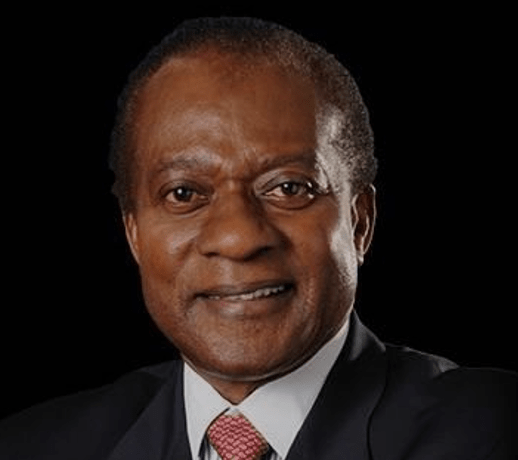By Peter Martey AGBEKO, APR
In a modest corner of Accra, in the bustling suburb of Adabraka, a young Victor B. Lawrence once roamed the streets, brimming with curiosity and ambition. Today, this Ghanaian-born engineer, scientist, professor, and entrepreneur stands as one of the world’s foremost contributors to digital communications and signal processing.
Victor Lawrence’s story begins at Achimota Secondary School, a prestigious institution where he laid the foundation for his illustrious career in 1958. At Achimota, he excelled in both his O-levels and A-levels, demonstrating a precocious talent that earned him a place at the Imperial College of Science and Technology, University of London.
By 1972, he had achieved a Bachelor’s, Master’s, and Ph.D. in electrical engineering—a feat that foreshadowed his ground-breakingcontributions to the global tech landscape.
A trailblazer in engineering
Victor Lawrence’s professional journey took him from the United Kingdom to Ghana, where he briefly lectured at the Kwame Nkrumah University of Science and Technology. However, it was at AT&T Bell Laboratories in the United States where his genius truly flourished. Over a 30-year tenure, Lawrence drove innovations that transitioned telecommunications from analogue to digital, laying the groundwork for today’s high-speed internet.
Among his numerous achievements, Lawrence is credited with designing algorithms that stabilised digital signal processors, inventing high-speed modems, and pioneering Digital Subscriber Line (DSL) technologies. His work transformed the way people access and share information, making him a key figure in the evolution of modern communication networks.
With 53 patents, over 100 published papers, and five co-authored books, Lawrence’s contributions to technology are staggering. He has garnered numerous accolades, including the IEEE Simon Ramo Medal, the IEEE Millennium Medal, and induction into the National Inventors Hall of Fame. As a Fellow of the IEEE and a member of the National Academy of Engineering, his legacy is enshrined in the annals of technological history.
National recognition for global impact
In a remarkable affirmation of his achievements, Dr. Victor Lawrence recently received the National Medal of Technology from President Joe Biden at a White House ceremony. This prestigious honour—the highest recognition for engineering in the United States—celebrates Lawrence’s pioneering work in digital signal processing, crucial to the transition from analogue to digital networks.
Dr. Lawrence’s innovations have been instrumental in the development of internet access technology and global data communications, solidifying his legacy as a trailblazer in science and technology. He is the first African-born recipient of the National Medal of Technology, a testament to his global impact.
President Biden praised Lawrence and other awardees for their ground-breaking contributions to challenges such as climate change, disease treatment, and technological advancement, stating that they “embody the promise of America by pushing the boundaries of what is possible.” The medal, established by Congress in 1980, underscores the transformative power of science and innovation in improving lives worldwide.
A chance to give back
Despite his global impact, Victor Lawrence’s connection to Ghana remains steadfast. Clips of his interviews and speeches, recently shared by renowned Ghanaian filmmaker Nii KwateOwoo, paint a vivid picture of a man deeply rooted in his heritage. Owoo, an octogenarian alumnus of MfantsipimSchool and the London Film School, has been a lifelong friend of Lawrence since their days in kindergarten.
Owoo is currently working with Paa Kwesi Holdbrook Smith on a comprehensive documentary about Lawrence’s life and achievements. During a conversation about reintroducing Lawrence’s expertise to Ghana, Owoo expressed hope that his unparalleled knowledge could be harnessed to address the country’s pressing engineering and technological challenges.
Previous efforts to engage Lawrence were thwarted by bureaucratic inertia, but Owoo and his collaborators are determined to make another attempt. Their vision is clear: leverage Lawrence’s expertise to revolutionise local industries, foster innovation, and establish Ghana as a global tech hub.
A legacy of knowledge and innovation
Victor Lawrence’s career is a testament to the transformative power of education, perseverance, and a commitment to innovation. At Stevens Institute of Technology, where he serves as the Director of the Center for Intelligent Networked Systems, Lawrence continues to mentor the next generation of engineers.
He has co-authored five influential books, holds over 53patents, and has published more than 100 peer-reviewed papers. His contributions extend beyond academia, underpinning technologies that power secure communications, high-speed internet, and global telecommunication networks.
Reimagining Ghana’s future
As Ghana faces the 21st century’s technological challenges, the opportunity to engage a luminary like Victor Lawrence is both timely and crucial. His expertise in digital signal processing and network engineering could revolutionise local industries, from telecommunications to education and beyond.
For Nii Kwate Owoo and other stakeholders, the hope is that decision-makers will embrace this second chance to collaborate with Lawrence. As the nation strives to nurture innovation and technical excellence, the prospect of drawing from his deep reservoir of knowledge could mark a pivotal moment in Ghana’s development story.
Victor B. Lawrence is more than an engineering pioneer; he is a bridge between past and future, Ghana and the world. His story reminds us that genius, wherever it originates, can illuminate the path to progress and prosperity. For Ghana, the time to harness his brilliance is now.










